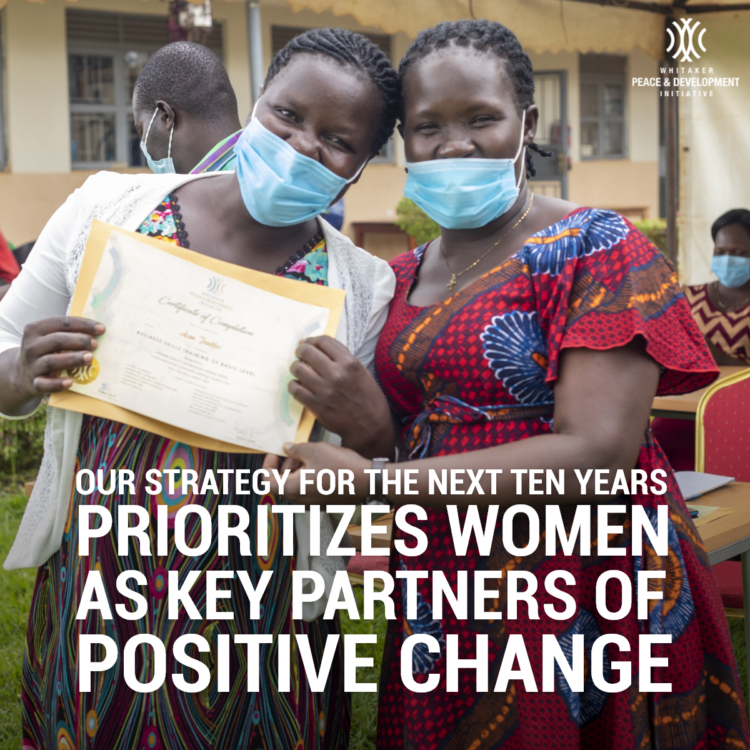March 8, 2022 – Ten years ago, Forest Whitaker founded WPDI with the vision that young people from conflict-affected and at-risk places lack opportunities to express the immense potential they possess to enact peace at the grassroots. In all the places where WPDI initiated programs with a focus on training and supporting young people, we were nevertheless confronted with the constant fact that conflict and poverty had disproportionate impacts not just on marginalized youths but also on underprivileged women, who systemically suffered from discriminations and gender-based violence. These problems were so organic that our programs naturally developed a strong focus on women’s rights and potential, reaching an average of 45% of women among our beneficiaries, bearing in mind that, in many of the places where we work, women face immense difficulties to carry out activities non related to domestic chores.
In South Sudan, our teams and volunteers struggle daily with a cultural environment that prescribes marriage at the earliest ages, with, as a consequence, nearly 50% of girls are married by the age of 18. Nevertheless, women leaders can be found when communities are engaged in a respectful and dedicated manner, as demonstrated by our Women Peace Ambassadors initiative, through which we trained and deployed South Sudanese women to advocate for gender equality in remote areas of the country.
In South Africa, for instance, working in Cape Flats to promote peace and inclusion in general has always entailed addressing the situations of women. This was a basic fact and it took a dramatic turn with COVID-19. The pandemic has piled new problems on the shoulders of women. Rates of violence against women surged to insufferable levels to the extent that local authorities approached us to mobilize our youths on the issue.
In communities affected by conflict, gender-based discriminations are aggravated because the voices of women are not heard. Listening is the first thing we do at WPDI and what these women told us is that they do not want to be treated as passive victims. They want to have a say on the outcomes of their lives. This is how we came to develop a livelihood program to train and support women as entrepreneurs. The demand has been so high that we expanded the program to other places. It’s now a mainstream component of our action in northern Uganda.
In our ten years of operation, we have learned a lot – firstly that, in vulnerable and marginalized places, women, just like youths, have a potential that cannot be ignored if we are to help their communities become more resilient, peaceful, and prosperous. Empowered women are key to achieving the Sustainable Development Goals. Thus, our new strategy for the next ten years focuses on women not just as beneficiaries, but also as assets. We will thrive to provide them with opportunities, opportunities to take part in peace processes; opportunities to create businesses; or opportunities to talk to governments and world leaders.
With women as a priority group, our action for gender equality and women’s empowerment will be more focused and more effective. We are already reaching out to existing and new partners to raise the profile and scope of our programs to promote women’s livelihoods or to ensure that schools offer more enabling environments for girls and adolescents. And we are convinced that, by listening even more to their voices, we will, in the years to come, develop new and even more ambitious ideas for programs to help women from underprivileged backgrounds make a difference.
